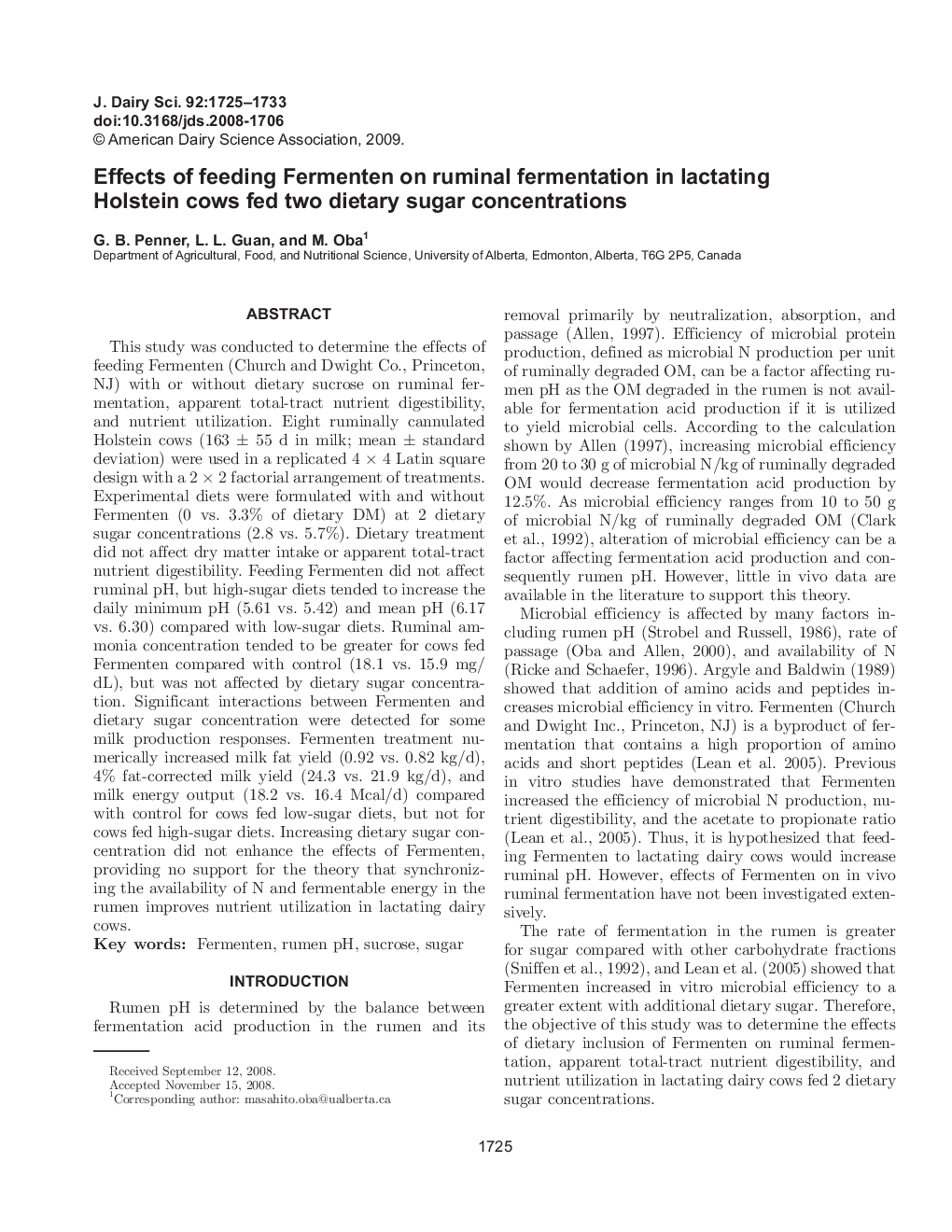| Article ID | Journal | Published Year | Pages | File Type |
|---|---|---|---|---|
| 2439190 | Journal of Dairy Science | 2009 | 9 Pages |
Abstract
This study was conducted to determine the effects of feeding Fermenten (Church and Dwight Co., Princeton, NJ) with or without dietary sucrose on ruminal fermentation, apparent total-tract nutrient digestibility, and nutrient utilization. Eight ruminally cannulated Holstein cows (163 ± 55 d in milk; mean ± standard deviation) were used in a replicated 4 Ã 4 Latin square design with a 2 Ã 2 factorial arrangement of treatments. Experimental diets were formulated with and without Fermenten (0 vs. 3.3% of dietary DM) at 2 dietary sugar concentrations (2.8 vs. 5.7%). Dietary treatment did not affect dry matter intake or apparent total-tract nutrient digestibility. Feeding Fermenten did not affect ruminal pH, but high-sugar diets tended to increase the daily minimum pH (5.61 vs. 5.42) and mean pH (6.17 vs. 6.30) compared with low-sugar diets. Ruminal ammonia concentration tended to be greater for cows fed Fermenten compared with control (18.1 vs. 15.9 mg/dL), but was not affected by dietary sugar concentration. Significant interactions between Fermenten and dietary sugar concentration were detected for some milk production responses. Fermenten treatment numerically increased milk fat yield (0.92 vs. 0.82 kg/d), 4% fat-corrected milk yield (24.3 vs. 21.9 kg/d), and milk energy output (18.2 vs. 16.4 Mcal/d) compared with control for cows fed low-sugar diets, but not for cows fed high-sugar diets. Increasing dietary sugar concentration did not enhance the effects of Fermenten, providing no support for the theory that synchronizing the availability of N and fermentable energy in the rumen improves nutrient utilization in lactating dairy cows.
Related Topics
Life Sciences
Agricultural and Biological Sciences
Animal Science and Zoology
Authors
G.B. Penner, L.L. Guan, M. Oba,
